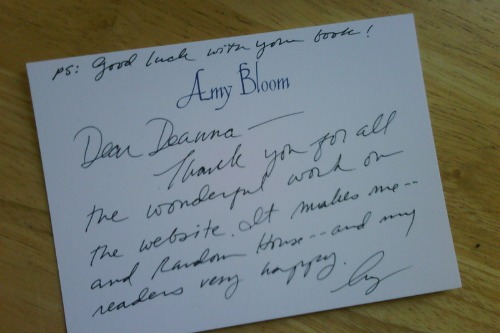1. Holding the Door—But Making You Rush

Holding the door open is a classic gesture of politeness. But when someone does it from 20 feet away and stares you down while you awkwardly jog to catch up, it’s not about courtesy—it’s about control. You’re suddenly performing gratitude for a favor you didn’t ask for. It’s a subtle way of asserting dominance under the guise of being helpful.
The message isn’t “I’m kind”—it’s “You owe me a thank-you.” It puts you in a position of social debt, even if you didn’t want the gesture. And if you don’t say thanks? You’re the rude one. That’s the power of the passive-aggressive door hold.
2. Insisting “I Don’t Mind” When They Clearly Do

You’ve offered to take the last slice or pick the restaurant, and they say, “Oh, I don’t mind—whatever you want.” But their tone says otherwise. This kind of faux-flexibility is often a way to appear generous while still controlling the outcome. It forces you to make the decision—and take the blame if it goes wrong.
It’s a power move wrapped in selflessness. You’re left second-guessing your choice while they maintain the moral high ground. It’s not about being easygoing—it’s about staying above the fray. And it works like a charm.
3. Sending a Thank-You Note That’s Just a Humblebrag

Thank-you notes are a dying art—but when they show up, they can be loaded. Some people use them to express gratitude while casually reminding you of their accomplishments. “Thanks again for attending my little book launch—I’m still shocked we sold out of the first printing!” It’s polite on the surface, but the subtext is pure self-promotion.
This kind of note keeps the social upper hand while appearing gracious. It’s a way to reinforce status without seeming arrogant. And it’s hard to call out, because technically, they’re just being nice. Technically.
4. Offering Help You Didn’t Ask For

Offering to help sounds generous—until it’s used as leverage. “Let me take care of that for you,” they say, and then later remind you of it… repeatedly. The help wasn’t requested, but now you’re in their debt. It’s a classic power move disguised as kindness.
This tactic creates a subtle imbalance. You feel obligated, even if the favor wasn’t needed. And if you don’t show enough gratitude, you’re the ungrateful one. It’s generosity with strings attached.
5. Over-Apologizing to Make You Feel Guilty

Saying “sorry” too much can seem like humility, but it’s often a way to manipulate the emotional tone of a conversation. “I’m so sorry I even brought it up—I shouldn’t have said anything,” they’ll say, forcing you to comfort them instead of addressing the issue. It flips the script and puts you on the defensive.
This kind of apology isn’t about accountability—it’s about control. It derails the conversation and shifts the emotional labor onto you. And suddenly, you’re the one saying sorry. Mission accomplished.
6. Complimenting You in a Way That Undermines You

“You look great today—I barely recognized you!” or “You’re so articulate!” These compliments sound nice, but they carry a subtle sting. They imply surprise, as if your competence or appearance is out of character. It’s praise with a side of condescension.
This tactic keeps the speaker in a position of superiority while appearing gracious. You’re left smiling through gritted teeth. It’s hard to call out without seeming petty. And that’s exactly the point.
7. Waiting Just a Beat Too Long to Respond

In conversation, timing is everything. Waiting a second too long to respond—or pausing before answering a question—can subtly assert dominance. It signals that they’re in control of the pace, and that your words are being weighed. It’s a power move dressed up as thoughtfulness.
This tactic is common in interviews, negotiations, and high-stakes meetings. It makes you second-guess yourself while they appear calm and measured. It’s not rude—but it’s not neutral either. It’s strategic silence.
8. Offering the Last Word—Then Adding One More

Letting someone “have the last word” is often seen as a gesture of maturity. But some people weaponize it by tacking on a final comment after you’ve already wrapped up. “You’re right, let’s move on… but just so you know, I wasn’t the only one who felt that way.” It’s a way to reassert control while pretending to concede.
This move keeps them in the driver’s seat without looking combative. It’s a polite way to win the argument after it’s supposedly over. And it leaves you with nothing to say—except maybe, “Well played.”
9. Lending Something With Strings Attached

When someone eagerly insists you borrow their book, tool, or even their car, it seems like a gesture of generosity. But later, they make sure to bring it up—over and over—reminding you of the favor you’re living under. Suddenly, a simple loan has turned into a contract you never signed. The gift wasn’t free—it was collateral.
This subtle tactic keeps you indebted to them without them ever having to say so directly. If you don’t return the item quickly enough or with enough gratitude, you’re painted as careless. The act of “helping” wasn’t about kindness—it was about control. And now you’re stuck proving your worthiness over something you didn’t even need.
10. Saying “Just Kidding” After a Sharp Comment

We’ve all heard it—someone drops a biting remark, then quickly follows it with, “Just kidding!” On the surface, it’s humor, but underneath, it’s often a safe way to deliver a real opinion without consequences. The jab lands, the damage is done, and the retreat makes them look harmless. It’s a free pass to say what they really think.
This tactic puts you in a bind—if you react, you look humorless, but if you ignore it, you’re swallowing the insult. It creates an uneven dynamic where they can poke at you without accountability. The humor is just a shield for control. And they walk away unscathed, while you’re left unsettled.
11. Giving You Advice You Didn’t Ask For

Unsolicited advice often comes dressed as concern, but it’s usually about authority. Someone tells you how to run your career, your relationship, or even your workout routine—without invitation. It shifts the conversation to their expertise, implying you’re in need of guidance. Suddenly, you’re positioned as the student in a class you never enrolled in.
The trick is that it feels rude to push back. If you resist, you look ungrateful or defensive, which only reinforces their role as the “wise one.” It’s not really about helping you—it’s about reminding you of their perceived superiority. And it keeps them at the top of the hierarchy.
12. Being “Too Busy” but Always Making Time for Others

When someone tells you they’re far too busy to meet, but then you see them prioritizing others, it’s not just scheduling—it’s signaling. Their “lack of time” is a subtle way of saying your place in their life is negotiable. It frames their attention as a scarce, valuable resource that you’re not fully worthy of. And that scarcity makes you chase it.
This move quietly elevates their status while lowering yours. You start adjusting your expectations, grateful for any sliver of time they do offer. The power isn’t in their schedule—it’s in the way they use it to keep you reaching. And the imbalance lingers long after the canceled plan.
13. “Forgetting” Important Details Conveniently

Forgetting your birthday, an agreed meeting time, or a key part of a conversation can look like simple absentmindedness. But repeated “forgetfulness” often functions as a tactic. It shifts responsibility back onto you, making you remind, re-explain, or prove what was said. It’s an easy way to dodge accountability without openly refusing.
This selective memory also gives them an advantage. They can reshape past events in their favor, leaving you scrambling to defend your version of reality. It’s gaslighting-lite—just subtle enough to pass as clumsiness. And yet, it always seems to work in their favor, not yours.
14. Turning Complaints Into Compliments

“I wish I had your confidence to wear something like that” sounds flattering at first. But hidden inside is a critique, dressed up as admiration. It frames your choice as bold—or even questionable—without directly saying it. You’re left wondering whether you were actually praised or quietly judged.
This backhanded style of “kindness” creates confusion. You smile, but part of you feels uneasy. The speaker maintains the upper hand by saying something that can’t be challenged without looking thin-skinned. And you’re left holding the weight of a compliment that feels suspiciously like an insult.
15. Always Offering to Pay—But Keeping Score

Picking up the tab seems like generosity, but some people use it as leverage. They insist on covering the bill, then later remind you of how much they’ve done for you. What started as kindness morphs into a ledger of debts you never agreed to. The act wasn’t about sharing—it was about keeping track.
This tactic locks you into an unspoken obligation. If you try to pay next time, they resist, making themselves look even more generous. But the scorekeeping never stops. And eventually, you feel like you owe them more than money—you owe them deference.
16. Giving Compliments Only in Public

A compliment offered in front of others feels good, but it can carry an edge. By choosing the stage carefully, they’re not just praising you—they’re shaping how others see you. It creates a performance of generosity that boosts their own image as the gracious one. And it puts you in a position where you have to reciprocate publicly.
The twist is that in private, the praise disappears—or worse, criticism replaces it. The imbalance between the public and private versions keeps you guessing. It’s not about lifting you up, but about controlling the narrative in the room. And you’re left applauding their kindness, even if it feels hollow.
This post 16 American Manners That Are Actually Power Moves in Disguise was first published on American Charm.


